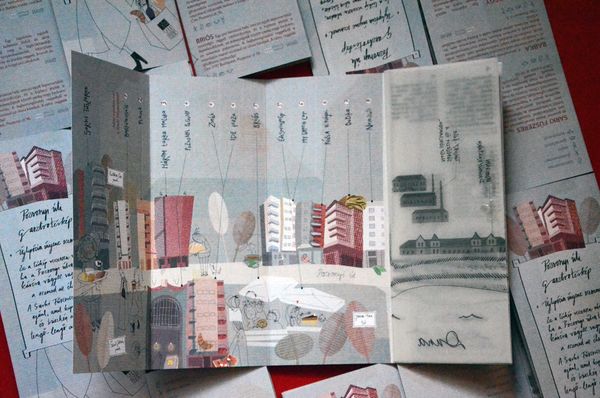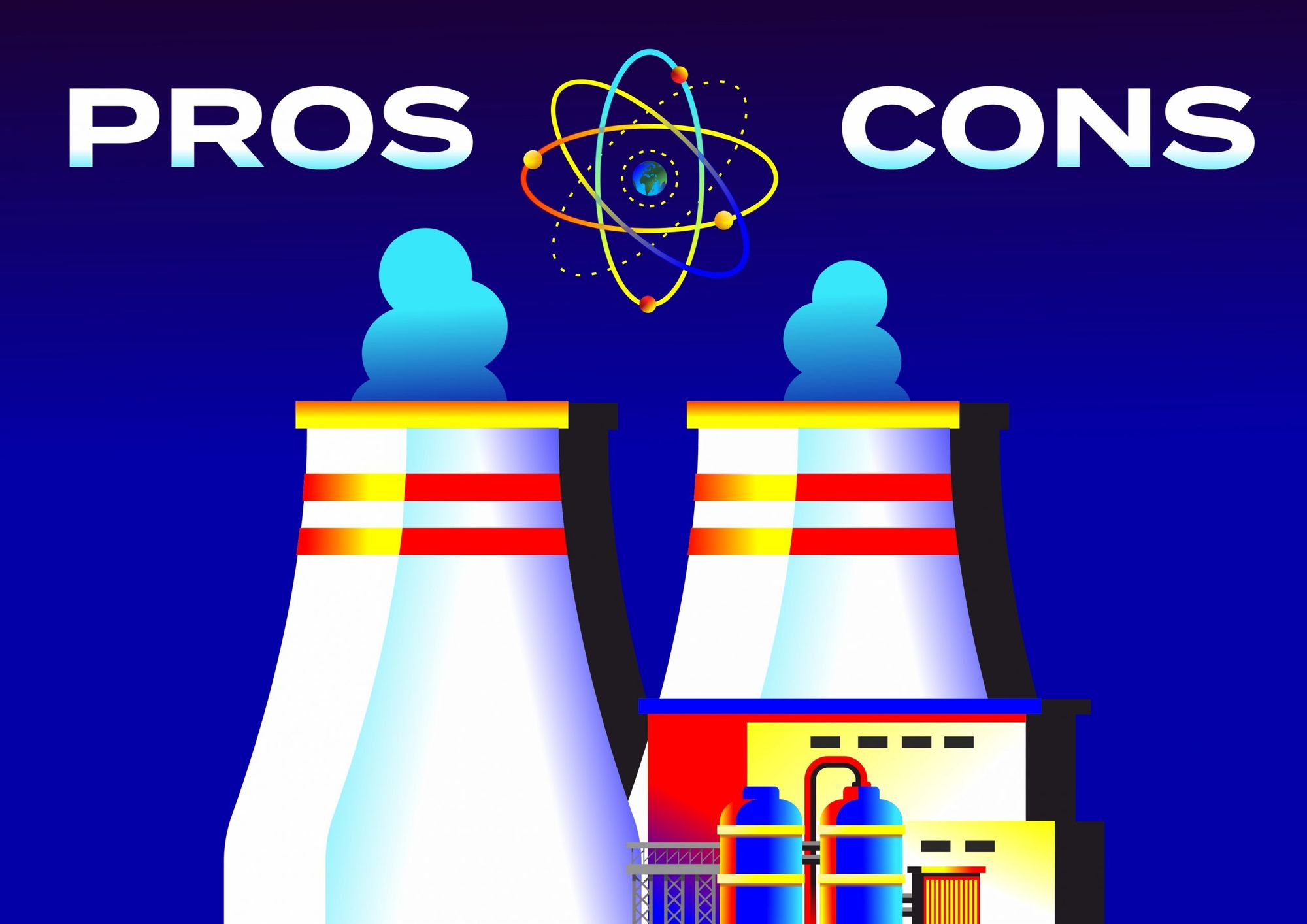Nuclear energy, Chernobyl and Fukushima, renewable green energy and Greenpeace transparency were among the issues discussed by experts at the Climate Policy Institute event in Budapest. Read our report to find out how we can be climate neutral!
Is nuclear energy green? The question is particularly pressing today, as the continent-wide energy crisis poses challenges to energy management and even to everyday consumers that we have not seen for a long time. At the event “Nuclear Energy: Atomic Green?” organized by the Climate Policy Institute in Budapest, Hungary, Prof. Dr. Attila Aszódi, Dean of the Faculty of Natural Sciences, Institute of Nuclear Engineering, Professor, Budapest University of Technology, and András Perger, Environmental Engineer, Greenpeace Hungary, responsible for the Greenpeace Climate and Energy Campaign, discussed the role of nuclear energy at the Mathias Corvinus Collegium in Budapest.
In the first area of the debate, participants were asked about energy policy priorities. According to Aszódi, this is a complex issue, as climate policy and environmental protection have come to the fore in the last 15 years, alongside the security of supply and economic efficiency. Currently, climate protection is the first priority, followed by security of supply, because “if there is electricity, there is everything, if there is no electricity, there is nothing,” followed by economic efficiency. According to Perger, European energy policy is moving in this triangle; the question is what will be the top priority. He believes today it should be environmental protection.
Perger said that he believes it is possible to switch to fully renewable energy sources, but only in the long term, and that Costa Rica had already had a few days when the country’s energy needs were met entirely by green energy.
However, Aszódi says that energy transformation should be seen as a whole and not just in terms of electricity. Electricity is becoming more and more valuable, and if we want to achieve climate protection goals, we not only need to transform the energy sector but also reorganize the chemical industry, the heavy industry and many other areas. The expert says that it is currently impossible to be 100 percent self-sufficient from renewable energy and that the Costa Rican example is only a few days, whereas the year is 365 days. “Electricity is always needed, and sustainability is both environmental, economic and social sustainability,” stresses Aszódi, who says that nuclear and renewable energy can work in combination with appropriate energy storage, but seasonal storage technology is needed, which is not currently available.
After these opening thoughts, the moderator dropped the nuclear bomb, quoting French President Emmanuel Macron. “Nuclear energy is safe; it helps meet climate targets and keep energy prices low,” while the new German government’s environment minister said Germany would still not accept nuclear energy as a green solution until the 2030 climate targets are met.
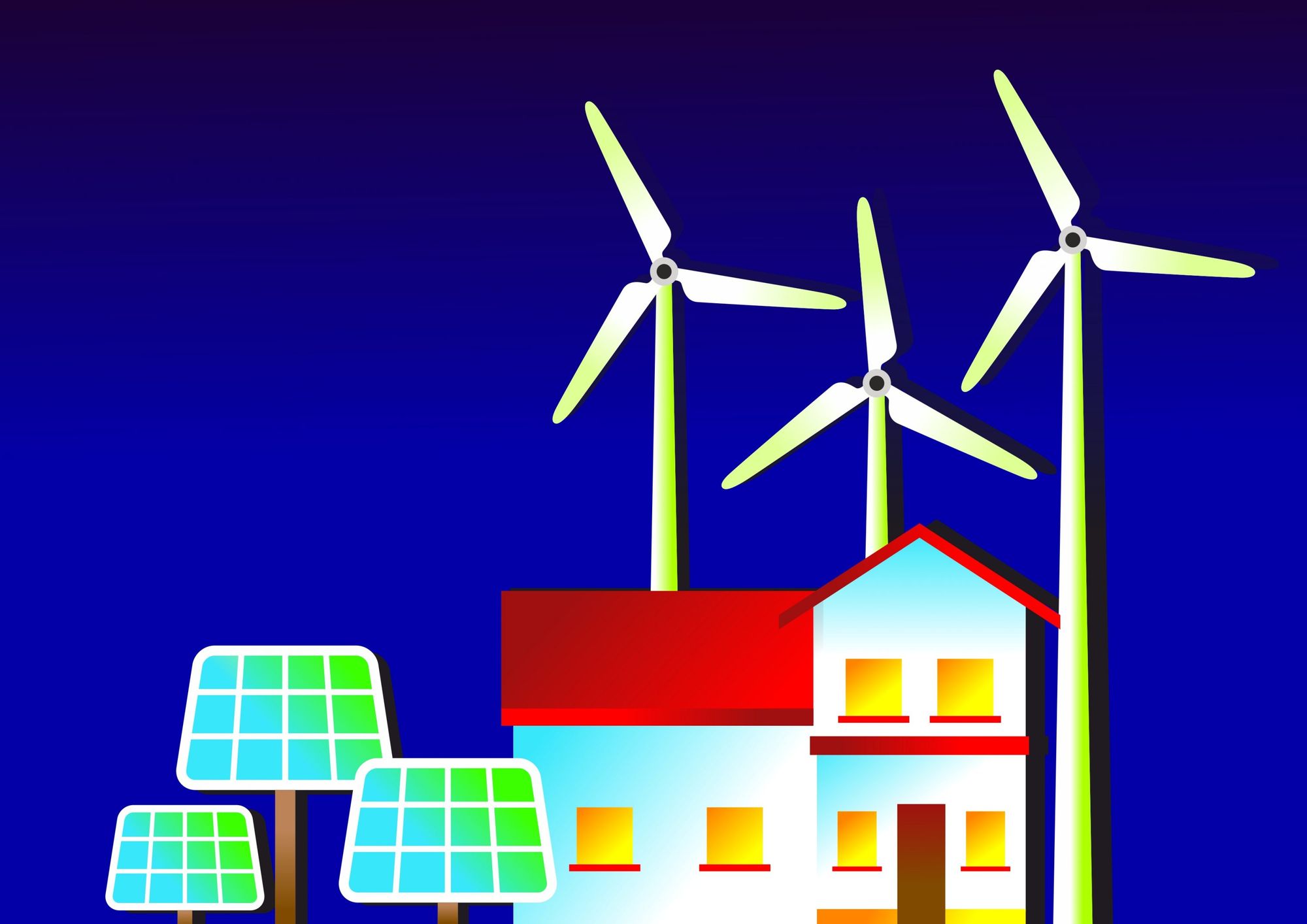
“Politicians make mistakes from time to time, and German politics has made a huge mistake,” Aszódi summarized, saying that the Germans are in a situation from which they cannot get out of, as they are constantly shutting down their nuclear power plants, while the lost capacity is replaced by natural gas, which is not sustainable from an energy and climate policy point of view, and from a foreign policy perspective they are dependent on Russia, increasing Europe’s exposure to Russian gas imports. He pointed out that France switched to nuclear energy after the 1973 oil crisis, and that the system is stable and the nuclear industry is well developed, so Hungary’s place is on the French side.
Perger challenged this statement by saying that in Germany, people were more likely to have access to information about nuclear accidents than in France, where domestic heating is powered by electricity, and therefore nuclear energy and security of supply are also social issues. “When we make decisions on energy policy, we look into the future,” said Perger, who believes that the French energy policy was not the best at looking into the future, given that 17 reactors out of the 56 reactor capacity were not operating in mid-December because of technical faults and safety issues. As a result, there were moments in France when electricity had to be imported. Germany is an exciting experiment, according to Greenpeace. It is not possible to judge right now whether it was a good or a bad decision to phase out nuclear power. Still, it is right that they want to speed up the transition. He believes that Germany will be right in the long run because most of the capacity installed in recent years has been renewable. The German government wants to double the share of renewables in ten years, and the market will follow this.
Aszódi, on the other hand, pointed out that German emissions from electricity, while decreasing, were mostly coal-based and are now gas-based, while French nuclear emissions are a fraction of that. “German emissions have fallen, but from a much higher base; the current German electricity system is not sustainable,” the expert said, pointing out that 800 kilometers of high-voltage power lines are missing but that Green politicians are not allowing them to be built because they have hystericized the public opinion. Aszódi added that the transparency of the Germans is questionable, as is the transparency of Greenpeace.
In a swift reaction, Perger said that it was not sustainable to shut down French reactors and that the German public had been fighting against nuclear power for 30 years. He also pointed out that the transparency of Greenpeace is not in question; everything is on their website that is required by Hungarian law.
Perger’s reaction was met with a punchy anecdote. Aszódi told how, at the very beginning of the last European Football Championship match between France and Germany, a Greenpeace activist flew over the stadium, but had the misfortune to get tangled up in the hall, got stuck in a cable, fell and injured two people. Safety is a priority for Greenpeace, which did not happen in this case, nor was it reported in the international media.
According to Aszódi, it is worth looking beyond the story to see how organizations like Greenpeace abuse the notion of security as they scare the public. “Green organizations in Germany and the US play a big role in pushing down nuclear power, which is then replaced by fossil fuels,” Aszódi said, pointing out that Greenpeace turns politics into hysteria.
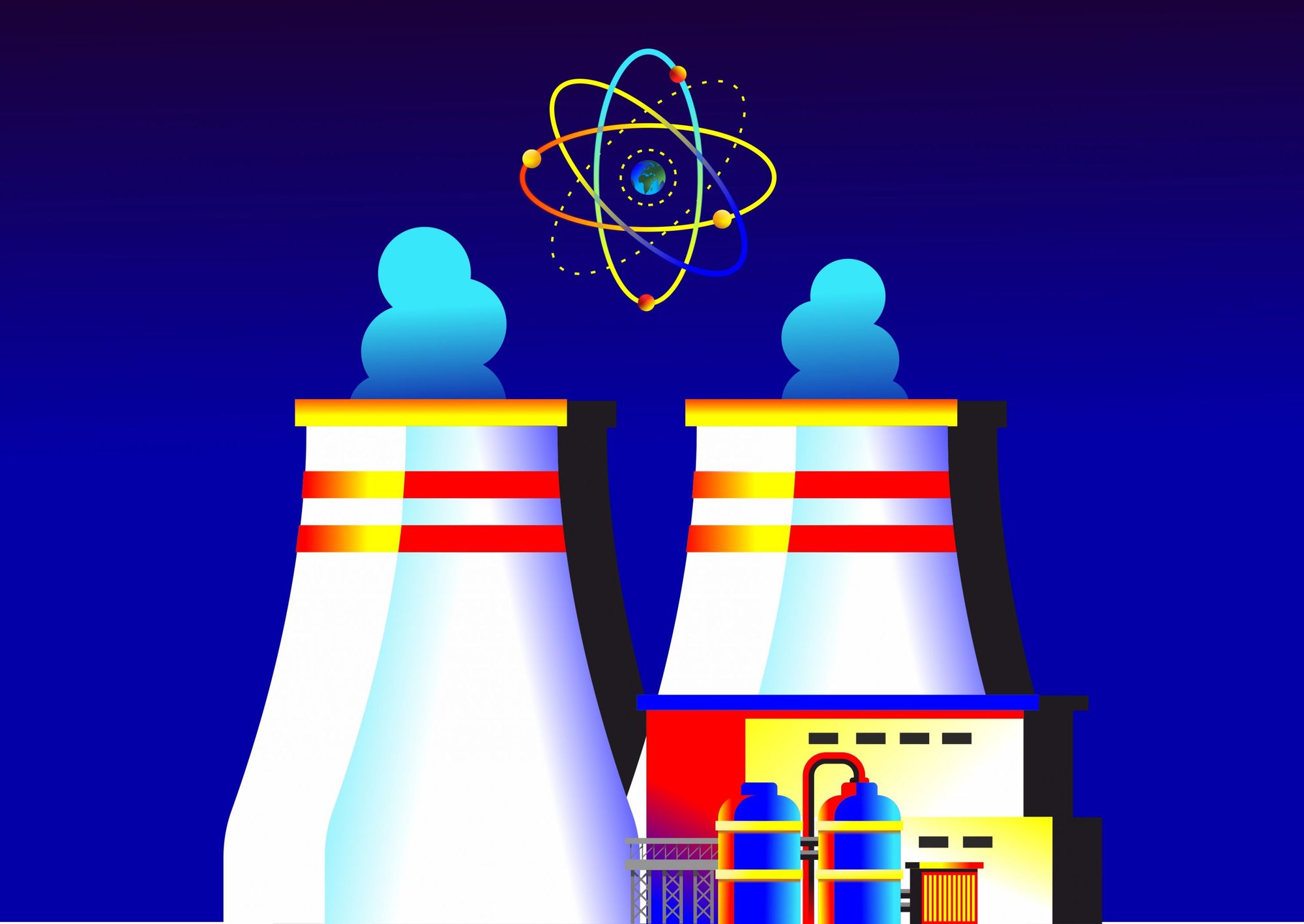
Perger then mentioned that Greenpeace is 50 years old and that an activist only died when the French secret service blew up their boat in New Zealand. He also said that, in the case of nuclear energy, human involvement in the domino series has caused many accidents in the past that have caused severe damage.
According to Aszódi, we have a shared responsibility to ensure that the information available to society is objective, and Greenpeace is picking up on one thing or another, diverting attention while there is room for dialogue but misleading society is a problem, as it ultimately misleads policymakers. “If we create public hysteria, then the decision-maker will not discuss real issues,” Aszódi concluded.
In response, Perger said that lobbies of entire industries can lead decision-makers, and Greenpeace is not such an organization.
But the nuclear disasters have also raised the question of how safe is nuclear power? According to Perger, no one believed that Chernobyl could explode, and Fukushima was expected to be safe in the event of an earthquake and tsunami according to preliminary calculations, so structural problems are always discovered after the event. “No matter how much the nuclear industry works on safety, we have to expect accidents from time to time,” said Perger, who believes the Fukushima case showed that not much has changed since Chernobyl.
According to Aszódi, we are making the fundamental mistake of believing that the risk of version B is zero, but the social risks associated with the operation of nuclear power plants are no higher than the risks of other cases, and in the case of priority installations safety is the main issue and we should not make general statements by picking out individual examples.
After all this, the issue arose that nuclear energy and natural gas are also considered green energy under the European Commission’s taxonomy regulation. “Nuclear and gas energy are neither green nor sustainable,” said Perger, summing up the situation, who says that the EU has kicked itself in the face with this decision, as it has abandoned the environmental policy it has been pursuing for decades. In his opinion, Hungary did what it should do in the EU: it lobbied and, together with the nuclear countries of Eastern Europe, there was a nuclear lobby under the French leadership and a gas lobby under the German leadership, and in the end, both sides won.
Aszódi began by saying that there is a problem that has been accumulating for 30 years, which consists of looking for a sustainable economic model that can be operated for many centuries, while politics has a dangerous quality of simplifying the facts. The EC decision is about what green stamps are and what are not. “It’s all ridiculously oversimplified,” says the expert, who adds that it’s nonsense that nuclear and gas powers are green. “But why should they be green and not green?” asks Aszódi, who believes the question is not whether something is green or not, but whether the EU can make the transition to climate neutrality in the short term without compromising the economic and social principles of energy policy. He points out that under the Treaty on the Functioning of the European Union, each country is free to define its own energy policy, a principle that the taxonomy regulation seeks to circumvent. “It is clear that we need nuclear energy,” concluded Aszódi, who said that without natural gas, the next 20 years in Europe would be impossible and that these projects would need to be financed, which the green energy certification would allow.
Graphics: Réka Pisla | Hype&Hyper
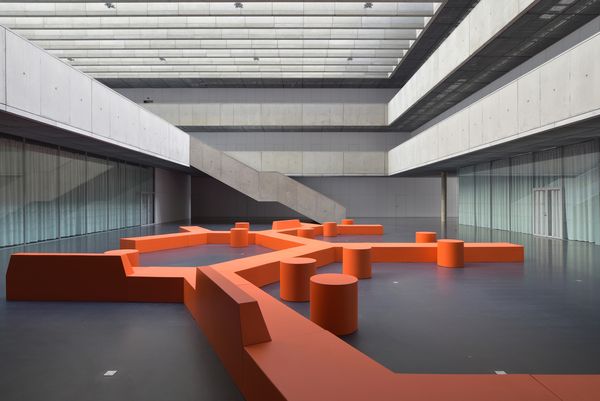
The Faculty of Humanities at the oldest university in Central Europe gets a new futuristic look

The tallest building of the Czech Republic will be more than just a simple skyscraper
